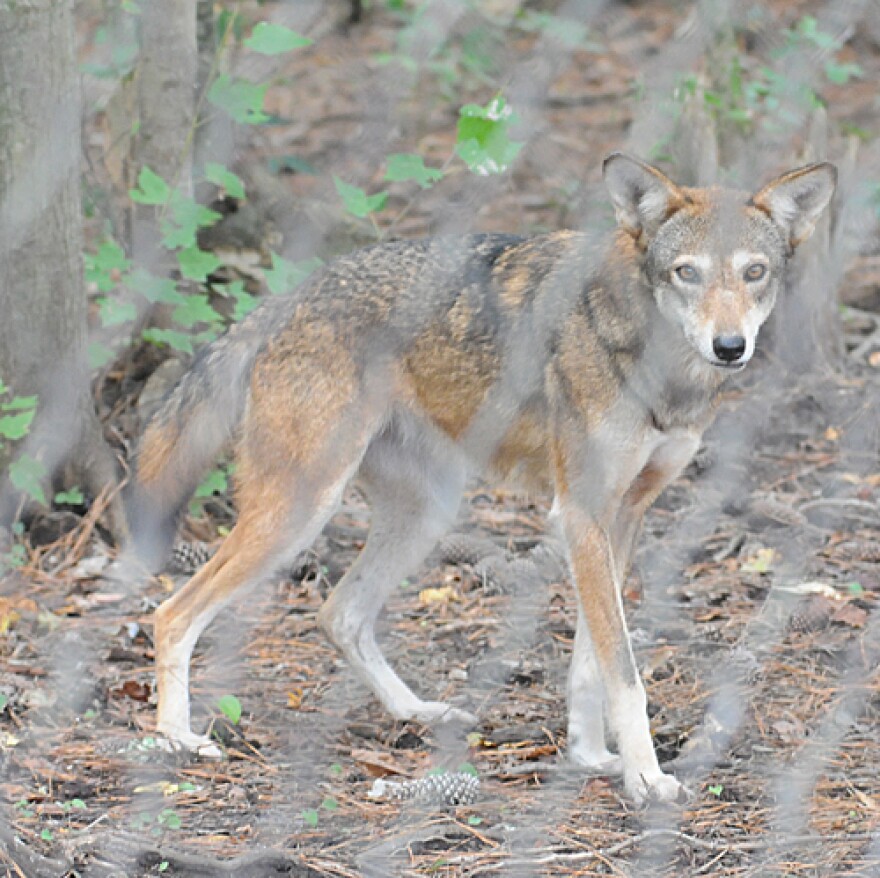Federal wildlife regulators want to scale back the red wolf recovery program in northeastern North Carolina.
The Fish and Wildlife Service issued a decision Monday on its two-year review of the 30-year-old program. The red wolf was the first endangered species reintroduced to the wild in 1987.
The wolves have spread to private properties in recent years, causing some landowners to complain. Some have shot and killed them, mistaking the red wolf for a coyote.
Monday's decision will pull the wolves back onto federal lands at the Alligator River National Wildlife Refuge and the Dare County Bombing Range. It will also put more of a focus on the captive population, with some wild wolves supporting those in captivity.
“The wild population in northeastern North Carolina, going forward, is going to require intensive management and we are going to need to manage the wild population and the captive population as one meta-population,” said Pete Benjamin, field supervisor for the Fish and Wildlife Service in Raleigh.
Several environmental groups have sued to stop the capturing or killing of red wolves on private land. They say the FWS recommendations undermine three decades worth of recovery efforts, and that it is not realistic to expect the wolves to stay on federal land.
“Best case scenario, they’ll get caught and brought back into captivity. Worst case scenario, any wolf that leaves Alligator River is going to get shot and killed,” said Ron Sutherland of the conservation group Wildlands Network.
Fish and Wildlife Service regional director Cindy Dohner said the captive population does not have enough mates, and has to be mixed with North Carolina wolves before the wild packs can further expand their territory.
“If we cannot secure the captive population by managing the two together, much like we did with the Puerto Rican parrot and the California condor, we could lose the red wolf,” Dohner said in a conference call on Monday.
Dohner said the agency will also consider new areas to expand the recovery program in the wild over the next year. The recommendations will go through a period of public comments before they can take effect.










